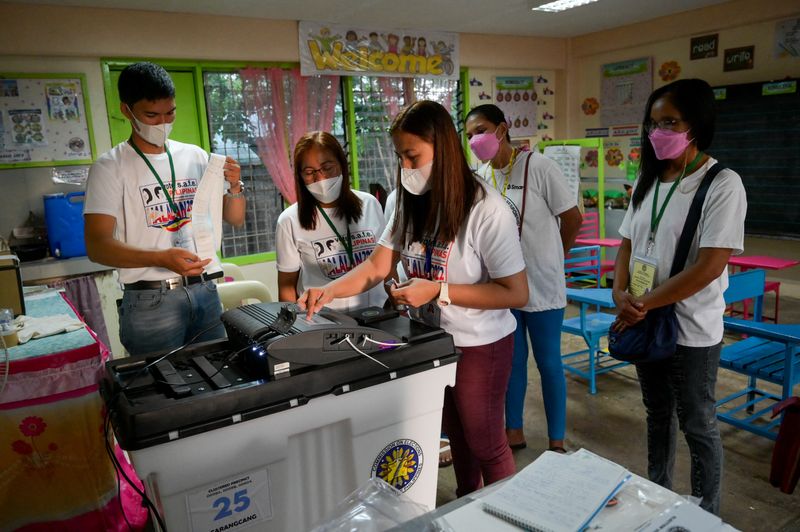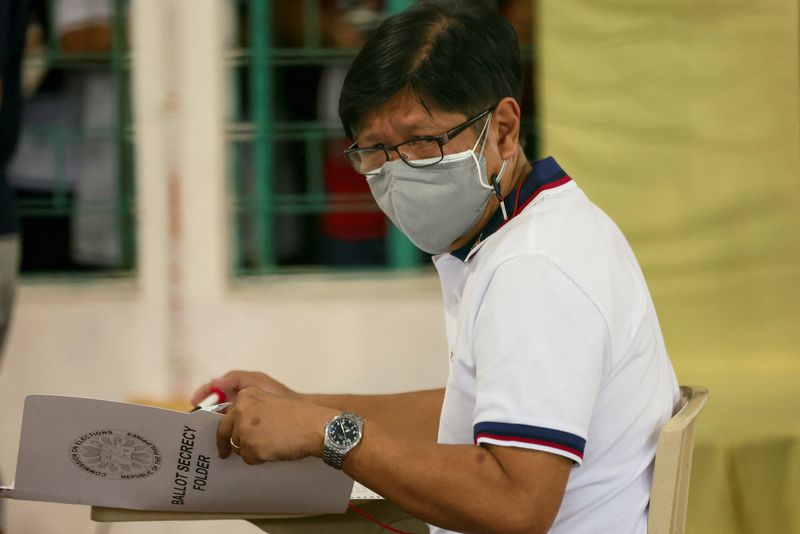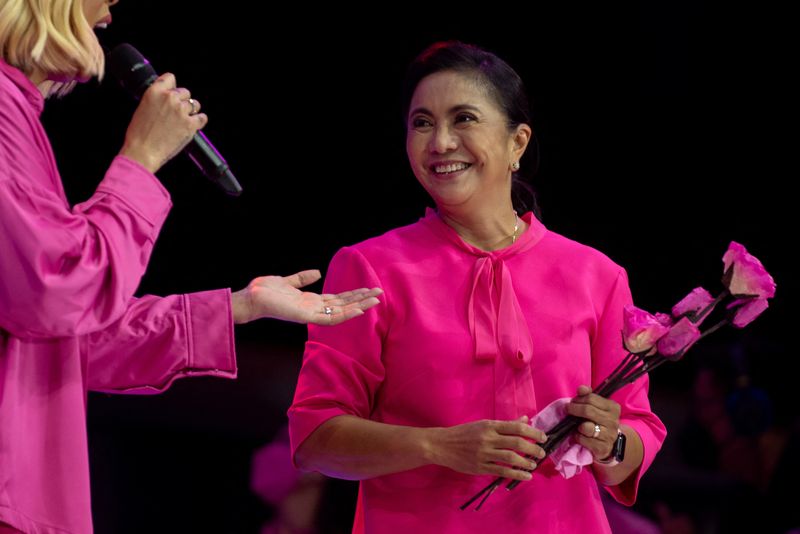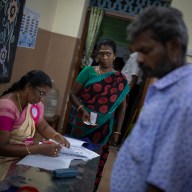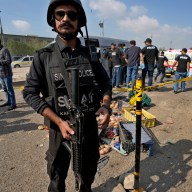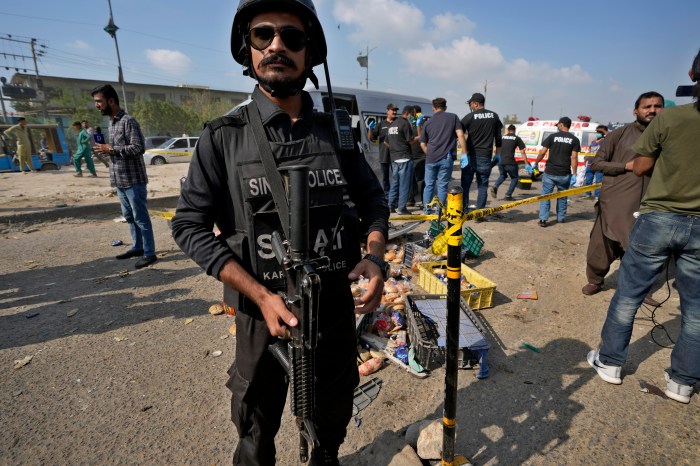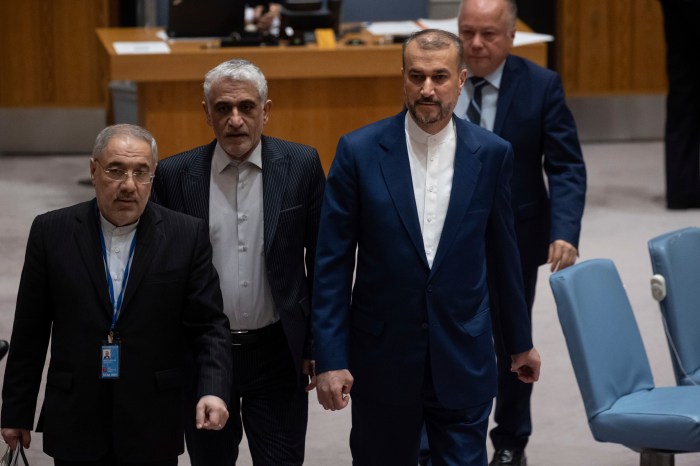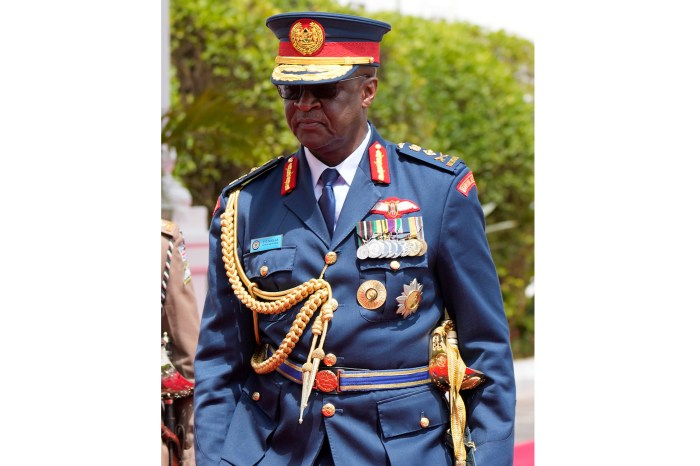(Reuters) – Voting started in the Philippines on Monday in a presidential election that has shaped into a two-way race between the clear favourite Ferdinand Marcos Jr and his main rival Leni Robredo.
Here are details on the candidates, starting with the current leader in opinion polls:
FERDINAND “BONGBONG” MARCOS JR
The namesake son of the late dictator, Marcos, 64, is a former governor, congressman and senator who has emerged as frontrunner with 56% support in the most recent opinion poll.
GRAPHIC: Support for main Philippine presidential candidates Support for main Philippine presidential candidate – https://graphics.reuters.com/PHILIPPINES-ELECTION/jnvwekzjwvw/chart.png
Since returning to the Philippines in 1991 from exile after the dictator’s removal, the Marcos family has sought to rebuild an image tainted by his often brutal rule and the plunder of billions of dollars from state coffers.
Known as “Bongbong”, Marcos Jr. picked Sara Duterte-Carpio, the daughter of current President Rodrigo Duterte, as his candidate for vice president, a move analysts say has helped enhance his popularity.
But the vice president is elected separately.
Popular with many younger people born after his father’s rule, Marcos says he offers a “unifying brand” of leadership.
Observers say his strong presence on social media has contributed to his lead in polls. Critics say Marcos is attempting to rewrite the family’s controversial history for a youthful electorate.
Marcos, who recently called his late father a “political genius”, has denied claims of spreading misinformation.
Last week, Robredo challenged Marcos to a debate, but he declined, saying he preferred to speak directly to the public.
LENI ROBREDO
Vice President Robredo, 57, is the leader of the opposition and the only female candidate.
She and Marcos have a longstanding rivalry, with Robredo’s affiliation firmly with the movement that ousted Marcos’s father after years of authoritarian rule and martial law.
The former human rights lawyer narrowly defeated Marcos in the contest to be vice president in 2016. She quit the role of Duterte’s housing minister after being excluded from cabinet meetings to become one of his staunchest critics.
After condemning what she called “senseless killings” in Duterte’s war on drugs, she was appointed his “drugs tsar”, but he sacked her after just 18 days.
Robredo is pressing for public sector transparency and has vowed to lead a government that cares for the people and to bolster the medical system.
A win for Robredo would maker her the third woman to lead the Philippines after democracy champion Corazon Aquino in 1986 and Gloria Macapagal-Arroyo in 2001.
She is running with Francis Pangilinan, a lawyer and senator, and the latest survey put her in second place, with support of 23%.
MANNY PACQUIAO
Retired boxing superstar Pacquiao, 43, has vowed to jail corrupt officials and has criticised Duterte’s close relationship with China.
He has pledged to improve the healthcare system, eradicate corruption, spur economic growth and provide housing for the poor.
He is third in the polls on support of 7%, running with Jose Atienza, a congressman and former environment minister.
FRANCISCO “ISKO MORENO” DOMAGOSO
The mayor of the capital, Manila, and a former movie heart-throb, has promised zero tolerance of Chinese maritime aggression in the South China Sea and his economic agenda centres on housing, labour, health and infrastructure.
Domagoso, 47, who is lagging in the polls on 4% support, is running alongside Willie Ong, a doctor who has 16 million followers on Facebook looking for free medical advice.
PANFILO LACSON
Lacson, 73, is a senator and former national police chief who made an unsuccessful presidential bid in 2004 and is also trailing in the latest poll on 2% support.
(Reporting by Neil Jerome Morales; Editing by Ed Davies and Clarence Fernandez)

